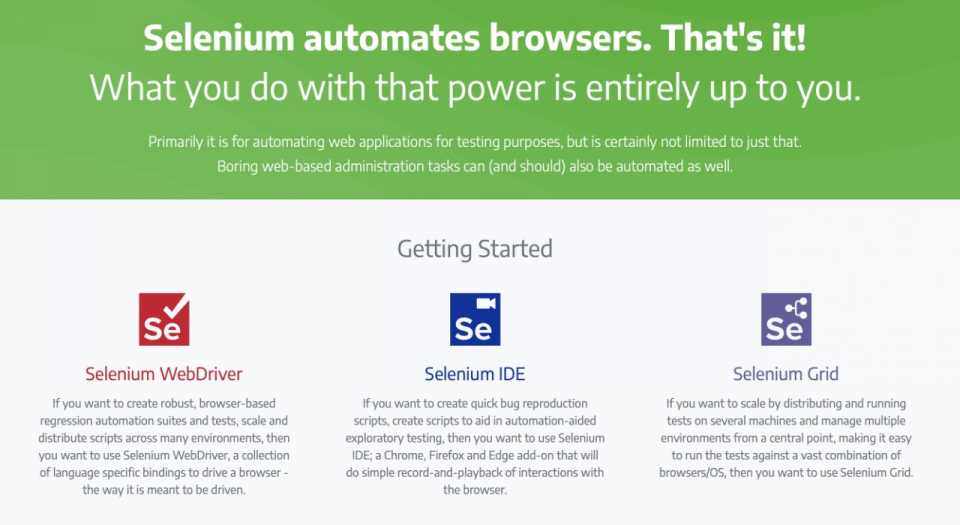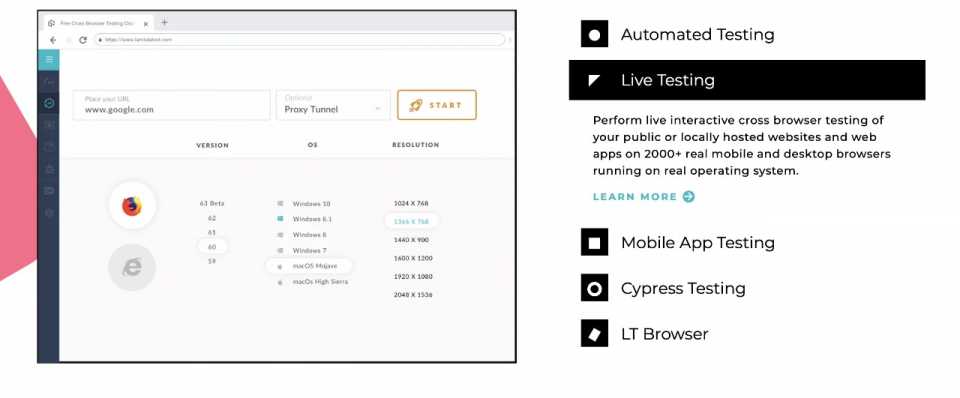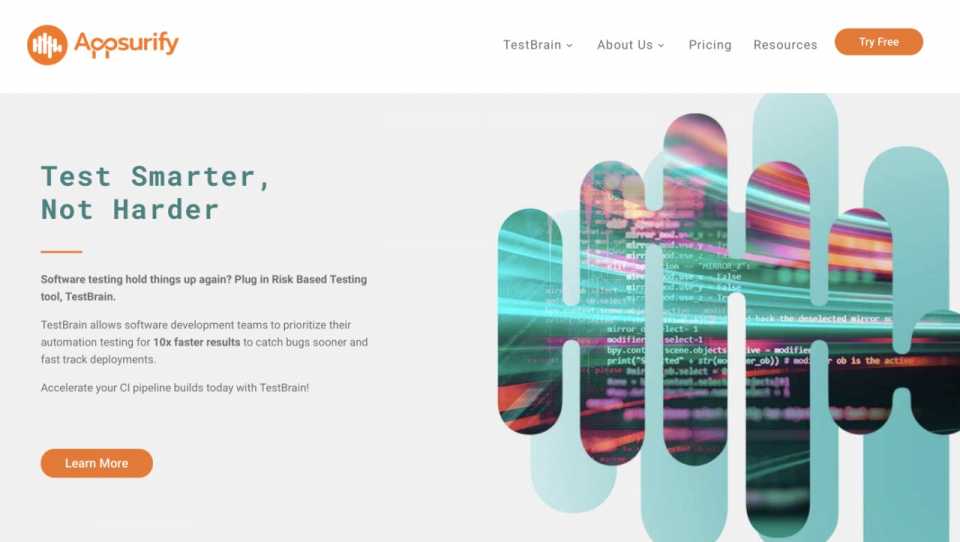5 Best Automation tools to use in 2021 (complete guide) !
Testing a software application before it gets deployed and reaches end-users is indispensable in the software development process. Software testing ensures that a particular software product functions according to the requirements specified by a client or end-users. Moreover, it identifies all possible and unnoticed bugs, errors, or defects in a software product before it goes live.
Today, software developers have no provision to deliver a software application even with a minor defect. Therefore, they have adopted automation testing to increase the set of tests on a software application.
Automation testing helps developers to enhance the overall quality of applications. It also reduces the testing cost and makes it faster than the traditional one. Hence, the efficiency of testing gets maximized due to automation.
What is Automation Testing?
Automation testing involves testing software products using special tools and scripts. In this type of testing, test cases are executed automatically using specialized testing tools, and the obtained results are compared with the expected ones. Thus, there is no human interference in automation testing.
Automation testing has made the testing process effortless. All the repetitive testing actions that are time-consuming and difficult to perform manually are automated using automated software tools. On the other hand, manual testing requires a professional human to execute test actions carefully.
Top 5 Advantages of Automation Testing
Using automation tools or software for the testing process is beneficial for the testing team in multiple ways, as follows:
Improved Accuracy
Automation testing ensures more accuracy than manual testing. However, minor errors may exist during manual testing, even if an experienced and agile person performs it.
Test cases generated by automation tools are more accurate and precise. But, on the other hand, automation testing guarantees that there can be no single defect or error present in a software product.
Increased Test Coverage
Many times, executing lengthy test cases in manual testing is quite tricky and challenging. However, as automation testing is faster, it covers lengthy tests within a short period.
Therefore, it is possible to execute more tests with automation testing. A software product’s features get tested with higher test cases and meet the highest quality standards.
Detection of Bugs in Early Stages
Automation tools help detect bugs or defects in a software application at the early stages of its development. Early detection of bugs saves a lot of time and costs required in correcting them in the later stages.
Automation testing provides faster feedback. In addition, it provides feedback for every single test case executed. Therefore, it becomes easier to detect bugs at each phase of the SDLC process.
In addition, if there is any change in the source code, test cases get automatically executed to identify bugs or defects due to the changes made.
Cost-effective
It is not feasible in manual testing to execute repetitive test cases. Testing an application increases the testing cost. On the contrary, automation testing is cost-saving in terms of the long run because test scripts generated in automation testing can be reused anytime.
High App Performance
As mentioned earlier, automation testing has the capacity for extensive test coverage. Due to the maximum test coverage, automation testing ensures a software product’s high quality and performance.
Furthermore, automation testing allows testers to run multiple test cases simultaneously on different platforms. The more the number of tests executed, the higher the performance and quality of an application.
Top 6 Metrics to Consider while choosing an Automation Testing Tools
A plethora of automation testing tools is available today to use. However, choosing the right one might be a daunting and tricky task. Below are some significant parameters to look into while choosing the automation testing tool.
Platform Compatibility
Select the automation testing tool that works well with all significant platforms and environments. However, some software tools only support Java and .NET applications. Therefore, you must research a lot about the tool’s compatibility before choosing to use it.
Test Creation
An automation testing tool should offer two or more ways to perform the same single task. For instance, consider your tool only supports scripting for generating automated test scripts. Therefore, it would be incredibly challenging for inexperienced members to carry out the testing process.
Look for an automation testing tool that allows each team member to generate, run automated tests efficiently and manageably, irrespective of their coding expertise.
Operating System Compatibility
The automation testing software should not be limited to a few operating systems. Instead, it should be compatible with all modern operating systems. Additionally, it should support various OS configurations and older OS versions, as per users’ choices.
Versatility
Your automated testing tool should support all kinds of automated testing, such as load testing, unit testing, functional testing, etc. Make sure it allows you to perform any type of test based on your requirements. Many tools have add-ons that you may use whenever required and pay accordingly.
Price
Price matters the most while you buy anything or an object. We always think about whether an object is worth the cost. Therefore, check whether your tool offers all essential features at the market price. Moreover, you should check the additional cost when you require any add-on or an upgrade.
Feeding and Fetching Data
The automation testing software you pick should support various data formats to feed and fetch data. It should intake the required data from different sources, like Excel, XML files. It should also support data intake from multiple databases, like SQL, MySQL, Oracle, etc. Finally, it should allow you to fetch reports in MHT, Excel, and XML+HTML.
Top Automation Testing Tools to Use
Here are some handpicked automation tools and their features that may help you pick the best one.
1. Testsigma

Testisgma is a comprehensive cloud-based automated testing platform for modern and agile testing teams. It is an AI-driven automation testing tool that uses simple English language and is ideal for web application testing, mobile application testing, and API testing.
Testsigma supports regression testing, cross-browser testing, continuous testing, and data-driven testing. It helps you develop and execute test scripts across 800 different browsers on Android and iOS devices and desktops.
You can get detailed real-time results of every test script being executed. Moreover, you can access the outcome of a test case at every step. The integrated reporting feature enables you to concentrate on the most priority test cases. You can generate test plans, handle user requirements, and prioritize test cases with Testsigma’s built-in test management feature.
Additionally, Testsigma can integrate with bug tracking, CI/CD, and collaboration tools, such as Jenkins, Bugzilla, and Jira. Such a seamless integration ensures efficient bug tracking.
Testsigma is ideal for anyone, may it be SMEs, QAs, or developers. All of them can write test scripts in simple English with Testsigma’s NLP-based test authoring.
Pricing
Testsigma offers a 30-day free trial. There are three pricing plans, Basic, Pro, and Enterprise. The Basic plan requires $299 per month, Pro requires $399 per month, and the Enterprise plan is customizable. However, it also offers a separate plan for start-ups at $99 per month.
2. Selenium

Selenium is one of the widely-used and open-source automation testing tools. A web-based automation tool supports multiple operating systems, including macOS, Windows, and Linux. Moreover, It supports various browsers, like Chrome, Firefox, Safari, etc.
Selenium WebDriver is used to develop automation test scripts. You can distribute these browser-based test scripts across various environments. Selenium IDE acts as an extension for Chrome and Firefox that helps you to generate bug reproduction scripts. It can also generate test scripts for exploratory testing aided with automation.
Selenium supports programming languages, such as JavaScript, PHP, Ruby, Perl, Python, Java, C#, etc., to create test scripts. Selenium Grid allows you to execute test cases on multiple remote machines and handle all of them from one central point.
Pricing
Free.
3. LambdaTest

LambdaTest is one of the best automation and manual testing tools, trusted by more than 500,000 people across the globe. You can perform manual and automated cross-browser testing of your publically or locally-hosted web apps on more than 2,000 operating systems and browsers.
Additionally, LamdaTest can seamlessly integrate with the desired project management, CD/CI pipeline, and bug logging tool. With such an integration, you can log bugs immediately that occur during the testing process. The geolocation testing feature enables you to test your application from any location.
LambdaTest supports performing cross-browser testing on the secure and reliable Selenium Grid. It supports performing multiple test scripts simultaneously, reducing the total time required for the testing process.
Pricing
LambdaTest offers lifetime free access to its limited features through the Lite plan. The paid version is Live, which requires $15 per month if billed annually.
There are two other popular plans – Web automation and Web & mobile browser automation. Web & mobile browser automation charges $99 per month, whereas Web automation requires $199 per month if both are billed annually.
There is an enterprise plan of LambdaTest that offers more advanced features. The ‘On-Demand Pass’ feature allows you to manually test your product for 120 minutes for 30 days at $10.
4. Appsurify TestBrain

Appsurify TestBrain is an automation testing software that helps you in carrying out testing ten times faster. It identifies and runs automated tests when developers make changes to a specific code. It is ideal for developers and QAs to test an application frequently and identify bugs.
Appsurify TestBarin can detect failures caused by flaky test cases and defects and isolate them from the main build. Moreover, it alerts you if you make any changes to the code that may end up causing high risk.
Appsurify TestBrain helps you to identify code changes that are most likely to cause defects. It allows hassle-free integration with existing testing environments and supports all major programming languages. You can use it in self-hosted and cloud versions.
Pricing
There are two different editions of Appsurify TestBrain – Professional and Enterprise. The professional edition is available at $10 per month. You can get a personalized pricing plan for the Enterprise edition. However, it offers a free trial of 60 days.
5. Telerik Test Studio

Another desktop and web-based automation software tool are Telerik Test Studio. It helps you to deliver a web application with high-quality standards that generally users demand.
The Record/Playback feature of Telerik Test Studio allows you to carry out automation faster. You just need to record a test first and create a test case easily using automated playback. Later, you can execute that particular test script on multiple browsers.
Furthermore, Telerik Test Studio minimized test maintenance with multiple built-in elements, such as centralized object repository, patent-pending element detection, and multi-mechanism element search. It has a comprehensive Executive Dashboard, enabling you to keep track of app quality using results and reports.
Telerik Test Studio is ideal for everyone, like developers, managers, or QAs, with or without coding experience or skills. It supports different programming languages, such as ASP.NET, AJAX, HTML, WPF, JavaScript, and Silverlight.
Pricing
Telerik Test Studio offers flexible licensing options that are a good fit for the entire team. For the Test Studio Web & Desktop license, you need to pay $2,499, and for the Test Studio Ultimate license, pay $3,499. Moreover, it offers a Runtime add-on licensing at $349.

